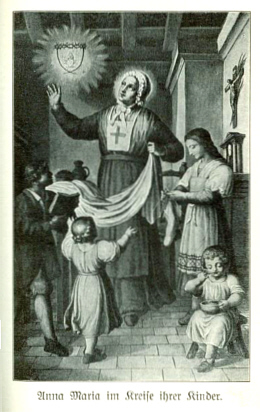 |
| Hell's jaws in a Cotswold church |
There has been a correspondence touching on this in the Catholic Herald; my contribution is in the current edition.
Stratford Caldecott (Letters, Jan 25) makes clear that the theologian Balthasar did not assume that all are saved. We can go further than this: as well as hearing many times in the Gospels, in general terms, that 'many' are lost and 'few' saved (Mat 7:13-14, 22.14, and passim), we also learn specifically that Judas Iscariot was damned. Our Lord says of him 'it were better for him, if that man had not been born' (Mat 26:24); after his suicide, St Peter affirms that he went 'to his own place' (Acts 1:25).
 |
| Dante, pointing to Mount Purgatory |
The smallest suggestion of such a guarantee is not only contrary to Scripture, but is utterly destructive of the apostolic work of Catholics, and of the sense of the urgency of repentance of sinners. Rather than fall prey to the false hope that somehow God will make everything all right without us lifting a finger, we should redouble our prayers for sinners. With this in view, the Latin Mass Society has launched the Sodality of St Augustine to unite our prayers for lapsed Catholics and others with the ceaseless prayer of the Church for this intention. Full details can be found on our website, LMS.org.uk.
My letter is accompanied by a rather amusing, and touching, testimonial from a certain Bernard Keigher, 'brought up in the 1940s', who has a healthy fear of hell: just as he developed early a healthy fear of 'hot irons, breaking school rules, and a lot more'. Of course we should fear hell: it is a fearful place. That doesn't exclude the love of God: on the contrary, the more we love God, the more we should be horrified at the possibility of losing Him. But we should fear hell even if our love of God is underdeveloped. As Mr Keigher concludes:
I hope to greet all the readers of The Catholic Herald in heaven one day. In my very humble opinion a lot more of them will make it if they believe in hell.
Making the possibility of damnation as vivid as possible has always been the practice of the Church. In this she follows her Founder, so if you don't like it you'd better take it up with Him. Here is a good example from the life of Blessed Anna Maria Taigi (1769-1837), who was granted private revelations of a particularly impressive kind. She lived in Rome, and the following was presented during the investigation of her for her beatification, by her confessor. Following a discussion of the number of the saved, she
saw the destiny of those who had died during that day. Very few, not as many as ten, went straight to heaven; many remained in purgatory, and those cast into hell were as numerous as flakes of snow in midwinter.
(Quoted in 'Wife, Mother, Mystic' by Albert Bessieres SJ, trans Rev Stephen Rigby. p184, footnote.)
If you feel compassion for those poor souls, instead of pretending hell doesn't exist, get on your knees and pray for the conversion of sinners! John the Sodality of St Augustine.

Although Balthasar says he doesn't assume that all will be saved, it is difficult to see how damnation can figure in his theological system. I read his book, "Dare we hope that all are saved" and came to the conclusion that he not only hoped, but by the logic of his theology was led to it - only the words of Christ and of the Church held him back. The thesis that his theology on Holy Saturday and salvation is radically uncatholic has been developed in detail by Alyssa Pitstick.
ReplyDeleteMy ignorance of Balthazar stops me commenting on him. But Fr John Saward, who was something of a Balthazarian in years gone by, has revised his views - see his Wikipedia page:
ReplyDelete"in recent years, Saward appears to have come to share the growing unease among some Catholics about the nature and origin of Balthasar’s theology. In his 2005 work, The Sweet and Blessed Country, he describes Balthasar’s theory of universal hope as “a kind of blasphemy”."
http://en.wikipedia.org/wiki/John_Saward
It says also that Pitstick studied under him.
I get the impression that Stratford's being left behind.
"Making the possibility of damnation as vivid as possible has always been the practice of the Church."
ReplyDeleteDon’t you think that there is something moral wrong using a doctrinal untruth to persuade towards righteous behavior? This is like telling a child to be good or Santa Claus will pass you by on Christmas. Of course Santa Claus does not exist. It is a lie created and used to support an unscriptural holiday.
And there is Matthew 25 : 41.
ReplyDeleteSeems pretty clear!
Steve, the flaw in your argument is that the doctrine is true.
ReplyDeleteSo, he'll is a place where people who die go and live forever?
ReplyDeleteI argue for the justice and goodness of hell here:
ReplyDeletehttp://www.academia.edu/2311701/The_Justice_and_Goodness_of_Hell
Lamont,
ReplyDeleteYou undoubtedly are a learned person. I do not presume to have put as much time and effort in such a simple subject as hell. What you have provided me to review would require far more time than I would have at any time of the day. The bible was written by man as he was borne along by Holy Spirit. So, let us start here:
Most things in the Bible are support by the Bible itself. The truth of God's word was written for everyone to understand. And what the Bible, through many verses and situations, teaches is rather simple on the subject of hell. Going to heaven or Hell has created different views for both locations.
The question that leads any honest hearted person to the definition of Hell begins with: What happens to people when they die?
Jesus describes death as people being asleep because they can be resurrected. The fact that people have been resurrected from Sheol, Hell, the grave or the pit is well documented, both in the Hebrew and Greek Scriptures. From where do you suppose they were resurrected Heaven or Hell?
The doctrine of hell is closely based on scripture: look at Corinthians 15.
ReplyDeleteIf you want to know more I suggest looking at the entry in the Catholic Encyclopedia and the Catechism.
I am very familiar with what the bible teaches on hell. The the bible is its own authority on hell. That is what we should be using. So, when when I review the scriptures that validate hell, I do not find it to be a place of torment. Hades, Hell, Sheol and pit are all word used interchangeably. Sheol is used in the Hebrew Scriptures (31 times) and Hades in the Greek Scriptures (10 times) depending on which bible translation being used. Point and case, Since you mentioned a Catholic reference, in the Douay Version she'ohl' is rendered "hell" 63 times, "pit" once, and "death" once.
ReplyDeleteAs to its usage, I offer the account of Job.
Job was a righteous man and yet he wanted to Sheol. Surely you do not suppose that Job wanted to go to a place of torment to escape the torment he was going through. Moreover, the Job account was recorded by Moses at a time when the immortality of the soul was not a teaching or belief of ancient Israel.
Additionally, 1 Corinthians 15 mentions nothing about anyone suffering During death. Rather, it speaks to people being raised from the dead, specifically Jesus. Are you suggesting that the Christ was in a place of torment?
Dear Steve.
ReplyDeleteJesus established His Hierarchical Catholic Church upon the first Pope, Peter, (and the apostles - Bishops - in union with him) and every single word of the New Testament was written by a Catholic and those words were written to other Catholics in an already existing nascent Catholic Church; that is, the Catholic Church pre-existed the writing of the New Testament and which Testament is owned, lock, stock, and barrel, by the Catholic Church and she alone has the authority to say what it does or does not mean.
It is not well known, but it is, nevertheless, true that one crucial criteria for what would or would not be included in the Canon of The New Testament is whether or not this or that Catholic Gospel or Catholic Epistle had been read at The Holy Sacrifice of the Mass.
In a nutshell, Steve, you are wrong about the existence of Hell and the Catholic Church is right about the existence of Hell and I invite you to convert and come to the fullness of Truth that alone exists in the Catholic Church, but, mostly, I invite you onto the Braque of Peter, The Ark of Salvation, The Catholic Church, outside of which there is no salvation.